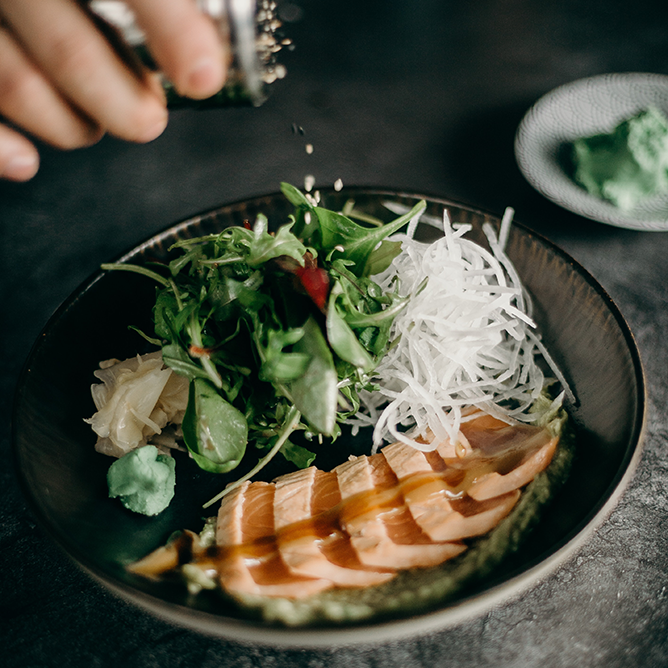

3 Stress-Busting Foods You Need to Start Eating
Let’s face it, stress is an unavoidable part of life. It happens, and sometimes when you least expect it. But what’s important to acknowledge is the impact that stress can have on your body.
Unmanaged stress levels are proven to increase your risk of health problems, like high blood pressure, heart attack and stroke, among others.
But we have some good news for you…
…a well-balanced and nutritious diet can help support your mood and reduce your stress levels. That’s right, when integrated into your routine alongside a restful night's sleep, and daily exercise, you can actually reduce your stress levels simply by eating the right foods.
So, the next time you’re feeling under pressure, arm yourself with this nutritious arsenal of 3 stress-busting foods that are sure to keep your cortisol levels in check.
The Best Stress Relieving Foods
Magnesium
Magnesium is important for regulating inflammation in your body, and for metabolizing cortisol, the hormone that leads to stress. It is because of magnesium that you are able to relax your body and mind. Some foods that are high in magnesium and worth adding to your diet include:
- Dark leafy green vegetables like boiled spinach and cooked broccoli
- Shelled pumpkin seeds
- Roasted almonds, cashews and peanuts
- Baked potato with the skin
- Dark chocolate and unsweetened cocoa powder
Omega-3 Fatty Acids
Omega-3 fatty acids are essential for maintaining the health of not only your heart, but your brain. They are responsible for supporting the functions between cells, and aid in the production of hormones that regulate blood clotting, and the contraction and relaxation of your heart's arterial walls. For a great source of omega-3 fatty acids, consider introducing these to your meal plan:
- Salmon or other fatty fish
- Avocado
- Olive oil
- Walnuts
- Flaxseed and chia seed
Lean Proteins
Among other health benefits, proteins promote the balance of blood sugar levels, which prevent spikes in cortisol that lead to feelings of stress. Consider adding lean proteins to your diet like chicken and turkey breast, quinoa, shrimp, tuna, lentils, and almonds.
Foods That Contribute to Stress Levels
In contrast, there are many foods that lead to an increase in cortisol, and in turn stress. Some foods that you should consider consuming in moderation if you think they might be impacting your current stress levels include alcohol, caffeine, simple carbohydrates (like baked goods, candy, fruit juices), and refined sugars.

Managing Stress with iheart HRV
The iheart HRV app helps you to measure your daily stress levels, so you know when it’s important to prioritize healthier lifestyle choices, like proper nutrition, adequate sleep and daily exercise.
The iheart HRV app analyzes your heart rate variability (HRV) and assigns you a score on a scale of 1-100. A score of 1 means you are at peak stress and a score of 100 means you are as relaxed as possible.
When measuring, if you receive a score that implies your stress levels are high, you can make adjustments in real-time, like meditating to slow your mind, or enjoying a stress-busting snack that will balance your hormones.
Heart rate variability is a well-documented measure of your body’s stress response, since your heart rate varies depending on whether you’re in ”fight or flight” or “rest and digest” mode.
The iheart HRV app is useful in giving you an idea of how much stress you’re holding in your body today, and is a fantastic tool for managing stress.


